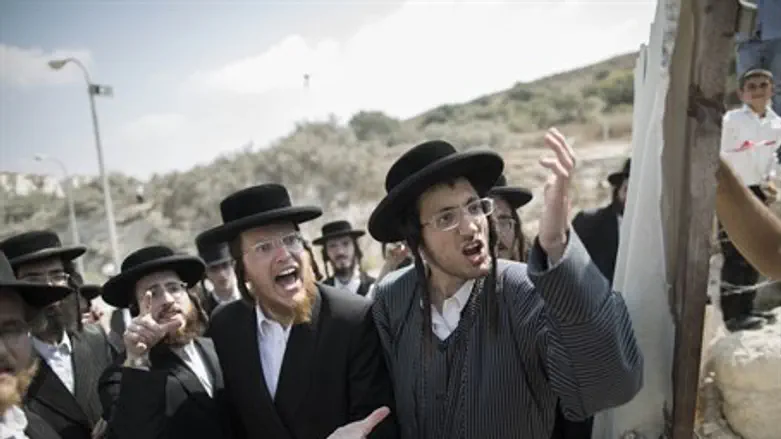
The hotly contested municipal elections in the city of Beit Shemesh have sparked renewed calls to split the city in two, Channel 10 reports.
Incumbent candidate Moshe Abutbul won the elections, which some had framed as a final decision regarding the city’s future. Some opponents of Abutbul, who is hareidi-religious, had expressed fear that his victory would mean the continuation of extremist hareidi violence in certain neighborhoods of the city.
In recent years some residents have proposed dealing with extremism and religious tensions by separating Beit Shemesh into two municipalities, one to head “old” Beit Shemesh, and one for the Ramat Beit Shemesh neighborhoods built beginning in the 1990s.
Not coincidentally, the split would turn Beit Shemesh from a religiously mixed city with a large hareidi-religious population to one mixed city with a small hareidi population, and one majority-hareidi city.
Supporters of the plan say it is the most realistic solution to the problem of tension between extremist hareidi groups and other residents of the city, and would allow each of the two cities to develop in a way suited to its own population.
But opponents contend the proposed plan would set a dangerous precedent. Prime Minister Binyamin Netanyahu’s opponents in the opposition roundly criticized him in 2011 for reportedly considering the plan, accusing him of dealing with the symptom, rather than with the underlying need to unify divided populations and enforce laws against violent behavior.
Hareidi-religious MKs were also critical of the proposal.
Former Minister of the Interior Eli Yishai refused to consider the proposal when it was first raised several years ago, citing financial concerns. However, according to Channel 10 current Minister of the Interior Gidon Saar is willing to consider the plan, and is planning to study it over the upcoming days.
Following his victory in the city elections this week, Abutbul called on ministers to "stop meddling in the affairs of the city."